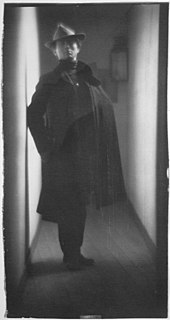A Quote by Nick Mason
Part of the gestation of 'The Wall' was this business of alienation from the audience, and so the interesting thing was, what 'The Wall' eventually became was something that absolutely engaged the audience.
Related Quotes
Wall Street can be a dangerous place for investors. You have no choice but to do business there, but you must always be on your guard. The standard behavior of Wall Streeters is to pursue maximization of self-interest; the orientation is usually short term. This must be acknowledged, accepted, and dealt with. If you transact business with Wall Street with these caveats in mind, you can prosper. If you depend on Wall Street to help you, investment success may remain elusive.
Is there a brick wall getting in your way? Fine. That happens. But you have a choice. You can walk away from the wall. You can go over the wall. You can go under the wall. You can go around the wall. You can also obliterate the wall. In other words, don't let anything get in your way. Get a balance, and then let the positive outdistance the negative.
When technology is used as a gimmick it can be a terrible distraction. The trick is to harness technology in a way that empowers the audience, informs them and brings them closer to the action. CNN has always been an innovator on election night, with the Magic Wall leading the way. Tonight, for the first time, and we're going to put the Magic Wall in the hands of our audience. Along with our partners at Microsoft, we have built a tool to let our users drill down into the key races and access a great deal of data, real time, as the results are unfolding.




































